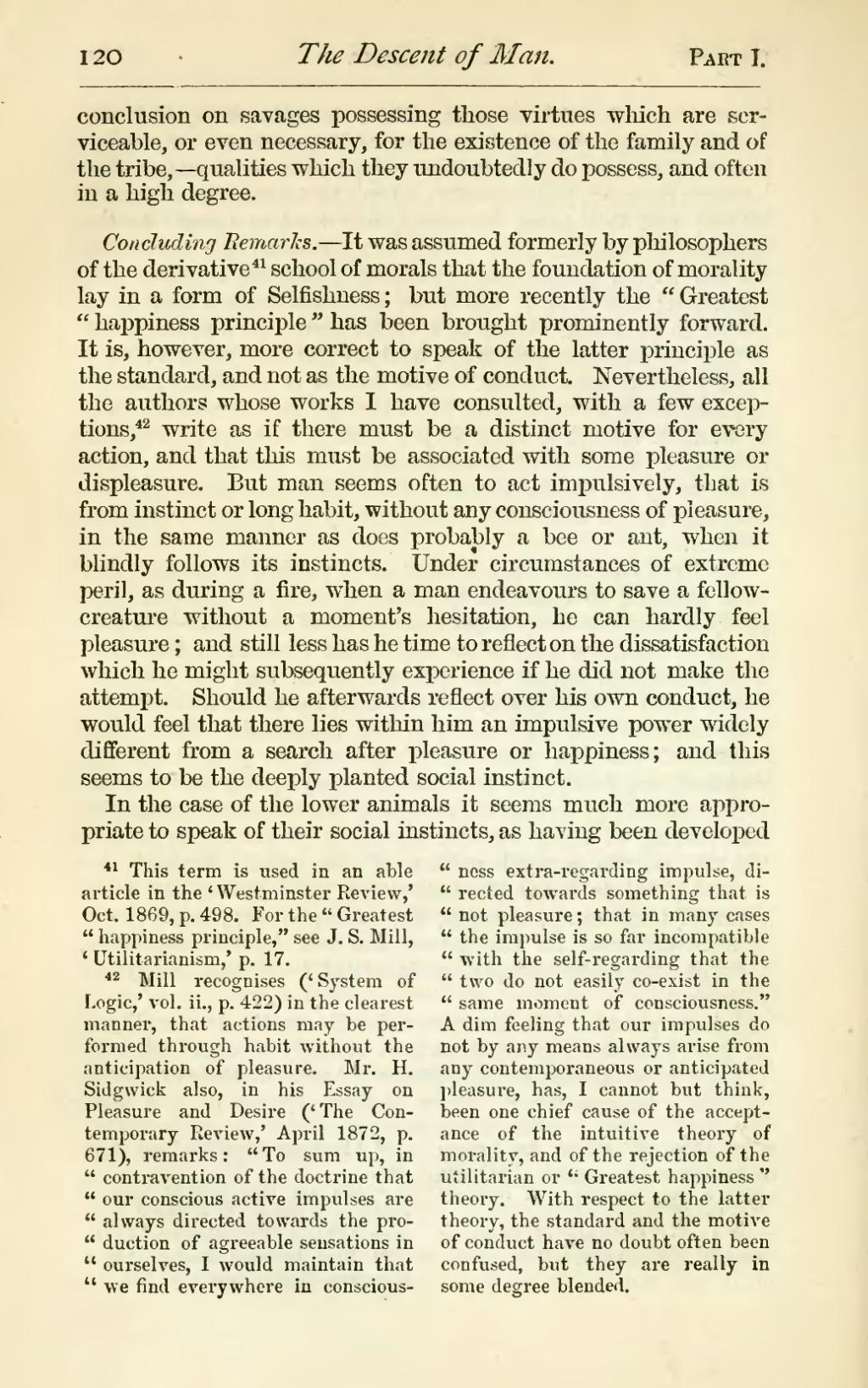conclusion on savages possessing those virtues which are serviceable, or even necessary, for the existence of the family and of the tribe,—qualities which they undoubtedly do possess, and often in a high degree.
Concluding Remarks.—It was assumed formerly by philosophers of the derivative[1] school of morals that the foundation of morality lay in a form of Selfishness; but more recently the "Greatest happiness principle" has been brought prominently forward. It is, however, more correct to speak of the latter principle as the standard, and not as the motive of conduct. Nevertheless, all the authors whose works I have consulted, with a few exceptions,[2] write as if there must be a distinct motive for every action, and that this must be associated with some pleasure or displeasure. But man seems often to act impulsively, that is from instinct or long habit, without any consciousness of pleasure, in the same manner as does probably a bee or ant, when it blindly follows its instincts. Under circumstances of extreme peril, as during a fire, when a man endeavours to save a fellow-creature without a moment's hesitation, he can hardly feel pleasure; and still less has he time to reflect on the dissatisfaction which he might subsequently experience if he did not make the attempt. Should he afterwards reflect over his own conduct, he would feel that there lies within him an impulsive power widely different from a search after pleasure or happiness; and this seems to be the deeply planted social instinct.
In the case of the lower animals it seems much more appropriate to speak of their social instincts, as having been developed
- ↑ This term is used in an able article in the 'Westminster Review,' Oct., 1869, p. 498. For the "Greatest happiness principle," see J. S. Mill, 'Utilitarianism,' p. 17.
- ↑ Mill recognises ('System of Logic', vol. ii., p. 422) in the clearest manner, that actions may be performed through habit without the anticipation of pleasure. Mr. H. Sidgwick also, in his Essay on Pleasure and Desire ('The Contemporary Review,' April 1872, p. 671), remarks: "To sum up, in contravention of the doctrine that our conscious active impulses are always directed towards the production of agreeable sensations in ourselves, I would maintain that we find everywhere in consciousness extra-regarding impulse, directed towards something that is not pleasure; that in many cases the impulse is so far incompatible with the self-regarding that the two do not easily co-exist in the same moment of consciousness." A dim feeling that our impulses do not by any means always arise from any contemporaneous or anticipated pleasure, has, I cannot but think, been one chief cause of the acceptance of the intuitive theory of morality, and of the rejection of the utilitarian or "Greatest happiness" theory. With respect to the latter theory, the standard and the motive of conduct have no doubt often been confused, but they are really in some degree blended.
